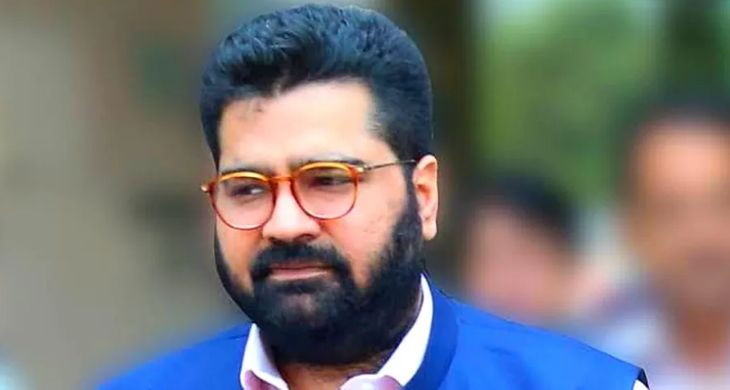
MP Kartikeya Sharma raises various crucial questions pertaining to different departments
Over 52 crore Indians now have Ayushman Bharat Health Account (ABHA) numbers, Union Minister of State (Health & Family Welfare) SP Singh Baghel informed Rajya Sabha in reply to questions asked by Member of Parliament Kartikeya Sharma during ongoing budget session on Tuesday.
MP Kartikeya Sharma raised crucial questions regarding the Ayushman Bharat Digital Mission (ABDM) and Ayushman Bharat scheme. In response, the MoS Prof. Satya Pal Singh Baghel provided comprehensive answers addressing each query in detail.
Question (a) focused on the number of health IDs created under the ABDM in both rural and urban areas across the country, with a request for state-wise details. The Minister highlighted that the ABDM aims to establish a national digital health ecosystem, facilitating interoperability of health data to create longitudinal Electronic Health Records (EHR) for every citizen. He revealed that as of January 24, 2024, a total of 52,50,15,110 ABHA Numbers have been created, with detailed state and UT-wise information provided in the Annexure.
Moving to Question (b), which inquired about the total number of Ayushman cards issued under the Ayushman Bharat scheme in the state of Haryana, the Minister disclosed that approximately 1.09 Crore Ayushman Cards have been created in Haryana as of January 29, 2024. This figure underscores the significant reach and impact of the Ayushman Bharat scheme in providing financial protection to impoverished rural families and designated urban workers’ families.
Lastly, Question (c) delved into the initiatives undertaken by the Government to enhance awareness and enrolment under the scheme in the state. The Minister outlined various measures implemented by the Ministry of Health and Family Welfare, including a comprehensive media and outreach strategy encompassing diverse channels such as outdoor media, digital displays, radio campaigns, and mass messaging through SMS. These efforts aim to empower beneficiaries by disseminating information about their entitlements and rights under the Ayushman Bharat scheme, thereby fostering greater participation and awareness among eligible individuals across the country, including Haryana.
SURGE IN TRADITIONAL MEDICINE USAGE NATIONWIDE
MP Kartikeya Sharma also raised questions regarding the state of traditional medicine in the country. In response, the Minister of Ayush, Sarbananda Sonowal, provided detailed insights into the initiatives undertaken by the government and the impact observed across various states.
MP Sharma’s first inquiry (a) pertained to the increase in the adoption of traditional systems of medicines such as Ayurveda and Homeopathy, and the Minister affirmed a positive trend. He noted a significant rise in the number of beneficiaries availing these services after the implementation of the Centrally Sponsored Scheme of National Ayush Mission (NAM). The Minister presented state-wise data, highlighting an increase from 155,772,964 beneficiaries in 2014-15 to 230,810,337 beneficiaries in 2021-22.
Moving to question (b), MP Sharma sought information on government measures to support and enhance the skills of traditional medicine practitioners. The Minister Sonowal outlined the AYURGYAN Scheme, which includes components focused on capacity building, continuing medical education, research, and innovation in Ayush. He emphasized the scheme’s role in bridging knowledge gaps and providing professional training opportunities for Ayush personnel.
Lastly, the MP inquired about the current status of higher educational institutions offering courses in traditional medicines in Haryana (question c). The Minister provided details in Annexure-III, illustrating the educational landscape in the state.
The Minister’s comprehensive responses shed light on the government’s proactive approach to promote traditional systems of medicine and empower practitioners in the field. The data presented underscored the growing acceptance and utilization of Ayurveda and Homeopathy among the populace, reflecting a positive trend towards holistic healthcare practices.
POWER MINISTER INFORMS ABOUT GREEN ENERGY OPEN ACCESS RULES
Union Minister for Power and New and Renewable Energy Raj Kumar Singh informed Rajya Sabha about Green Energy Open Access Rules while replying to a question asked by MP Kartikeya Sharma during ongoing budget session in New Delhi on Tuesday.
MP Kartikeya Sharma asked in the Rajya Sbaha about current provisions for small scale solar plants and renewable energy based electricity plants to connect with the grid and what assistance is provided by the ministry. Responding to Sharma’s queries, the minister said “We have come out with something called Green Open Access Rules, under the green open access rules we provided that any capacity above 100 MWs can connect to the grid and get open access to wherever they want to transmit the energy and transmission will also be totally free upto June 2025.”
If it is installed upto June 2026, it will be 75 per cent free and it will be 50 per cent free, if it is installed upto June 2027, he added.
C-PACE REVOLUTIONIZES BUSINESS EXITS NATIONWIDE
MP Kartikeya Sharma further raised crucial questions regarding the implementation and impact of the Centre for Processing Accelerated Corporate Exit (C-PACE) initiative, particularly in Haryana. In response, the Minister of State (Independent Charge) of the Ministry of Statistics and Programme Implementation, and Minister of State in the Ministry of Corporate Affairs, Rao Inderjit Singh, provided detailed insights.
As per the minister’s response, C-PACE has been operational since May 1, 2023, to streamline the voluntary exit process for companies under Section 248(2) of the Companies Act, 2013. The initiative aims to expedite the processing of applications for voluntary closure in a centralized manner for uniform and efficient outcomes. Since its inception, C-PACE has facilitated the striking off of 10,692 companies nationwide, including 330 companies in Haryana.
Furthermore, in line with the vision outlined in the Budget Speech (2022-23) of the Finance Minister, C-PACE strives to enhance the ease of doing business by significantly reducing the time taken to process company closure applications.
Regarding the specific inquiry about the number of companies benefiting from C-PACE in Haryana, the minister disclosed that 330 companies in the state have availed themselves of the initiative, contributing to the overall efficiency of corporate exits.